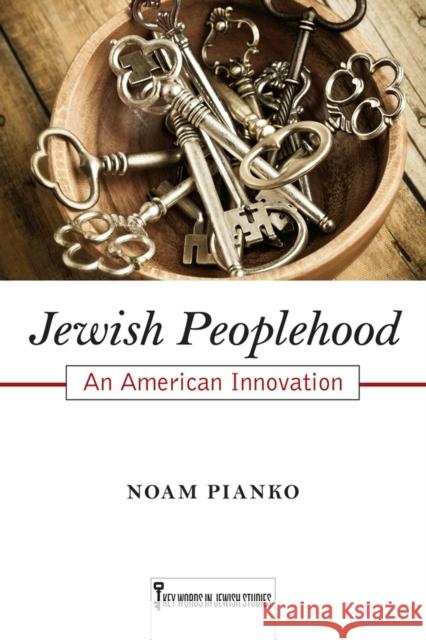Jewish Peoplehood: An American Innovation » książka
Jewish Peoplehood: An American Innovation
ISBN-13: 9780813563657 / Angielski / Twarda / 2015 / 186 str.
Jewish Peoplehood: An American Innovation
ISBN-13: 9780813563657 / Angielski / Twarda / 2015 / 186 str.
(netto: 580,69 VAT: 5%)
Najniższa cena z 30 dni: 603,49
ok. 30 dni roboczych.
Darmowa dostawa!
Winner of the 2017 American Jewish Historical Society's Saul Viener Book Prize
Although fewer American Jews today describe themselves as religious, they overwhelmingly report a strong sense of belonging to the Jewish people. Indeed, Jewish peoplehood has eclipsed religion--as well as ethnicity and nationality--as the essence of what binds Jews around the globe to one another. In Jewish Peoplehood, Noam Pianko highlights the current significance and future relevance of "peoplehood" by tracing the rise, transformation, and return of this novel term. The book tells the surprising story of peoplehood. Though it evokes a sense of timelessness, the term actually emerged in the United States in the 1930s, where it was introduced by American Jewish leaders, most notably Rabbi Stephen Wise and Rabbi Mordecai Kaplan, with close ties to the Zionist movement. It engendered a sense of unity that transcended religious differences, cultural practices, geographic distance, economic disparity, and political divides, fostering solidarity with other Jews facing common existential threats, including the Holocaust, and establishing a closer connection to the Jewish homeland. But today, Pianko points out, as globalization erodes the dominance of nationalism in shaping collective identity, Jewish peoplehood risks becoming an outdated paradigm. He explains why popular models of peoplehood fail to address emerging conceptions of ethnicity, nationalism, and race, and he concludes with a much-needed roadmap for a radical reconfiguration of Jewish collectivity in an increasingly global era. Innovative and provocative, Jewish Peoplehood provides fascinating insight into a term that assumes an increasingly important position at the heart of American Jewish and Israeli life. For additional information go to:
http: //www.noampianko.net











